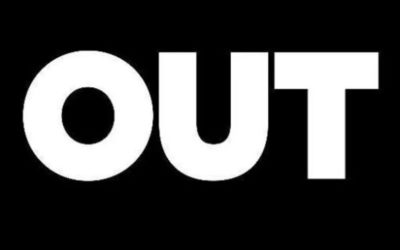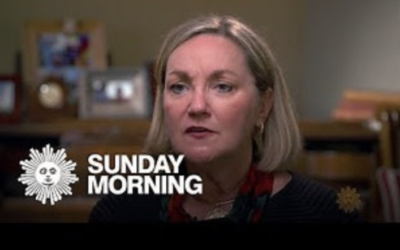Meet The “Cemetery Angel”

Meet The “Cemetery Angel” Who Cared For Hundreds Of AIDS Patients When No One Else Would
“I loved them. They were like my children, even though I was burying people my age,” says Ruth Coker Burks.
There was a time, not too long ago, when an HIV diagnosis was a death sentence.
There was no medicine, or even an understanding of how the disease spread, let alone what it was.
In the early 80s, when HIV first hit the U.S., there was just widespread panic, and a growing stigma against homosexual men. And where there wasn’t panic, there was indifference.
Related: Has The AIDS Vaccine Been Found? New Drug Blocks Every Strain Of HIV
Most people with HIV and AIDS were ostracized, treated as less than human—sometimes literally left to die by doctors and nurses unwilling to touch them. At a time when they needed compassion the most, they were met with discrimination and hatred.
Not everyone had this mindset, though.
There were kind souls who saw past the fear and felt compelled to help. One such person was Ruth Coker Burks of Garland County, Arkansas—otherwise known as the “Cemetery Angel.”
In a detailed interview with The Arkansas Times, Burks recalls her first experience with an AIDS patients back in 1984. She was just 25, and visiting a friend with cancer at University Hospital in Little Rock:
I would watch the nurses draw straws to see who would go in and check on [patients]. It’d be: ’Best two out of three,’ and then they’d say, ’Can we draw again?’
Whether because of curiosity or—as she believes today—some higher power moving her, Burks eventually disregarded the warnings on the red door and snuck into the room. In the bed was a skeletal young man, wasted to less than 100 pounds.
He told her he wanted to see his mother before he died.
I walked out and [the nurses] said, ’You didn’t go in that room, did you?’ I said, ’Well, yeah. He wants his mother.’ They laughed. They said, ’Honey, his mother’s not coming. He’s been here six weeks. Nobody’s coming. Nobody’s been here, and nobody’s coming.’
Burks contacted the young man’s mother after managing to get the number from hospital staff, but she refused to see her son—or even claim the body. After his death, though, Burks, saw to it that he was properly buried.
News got out of her efforts, and Burks found herself receiving call after call from patients, or sometimes their families. People who had been turned away by everyone else.
Of the hundreds of patients she helped, Burks says only a handful of families didn’t turn their backs on their loved ones. Some were terrified of the virus, others were convinced they were going to burn in hellfire.
She recalled the mother who called Burks up and demanded to know how much longer it would be before her son died. ” ’I just want to know, when is he going to die?’ ” Burks recalled the woman asking. “’We have to get on with our lives, and he’s holding up our lives. We can’t go on with our lives until he dies. He’s ruined our lives, and we don’t want people up here to know [he has AIDS], so how long do you think he’s going to stay here?’ Like it was a punishment to her.”
There was a lot of fear and misinformation in those days, and Burks has often been asked why she wasn’t afraid, or why she didn’t wear gloves around her patients.
“I have no idea,” she said. “The thought of being afraid never occurred to me until after I was already deep into the AIDS crisis. I just asked God, ’If this is what you want me to do, just please don’t let me or my daughter get it.’ And He didn’t.”
Interestingly, the patients Burks tended to lived two years longer than the national average.
“They would send people from all over the world to the National Institutes of Health, they would send them to the CDC, and they would send them to me,” she said. “They sent them to me so they could see what I was doing that helped them live.”
But there was no magic drug or therapy.
“I think it was because I loved them. They were like my children, even though I was burying people my age.”
The efforts of Burks and those like her have not been forgotten, though so many of those she helped have passed. Now 55, she says her faith fueled her bravery and incomparable strength.
“They were good days,” she said, “because I was blessed with handing these people back to God.”
For more of Ruth Coker Burks’ incredible story click here


